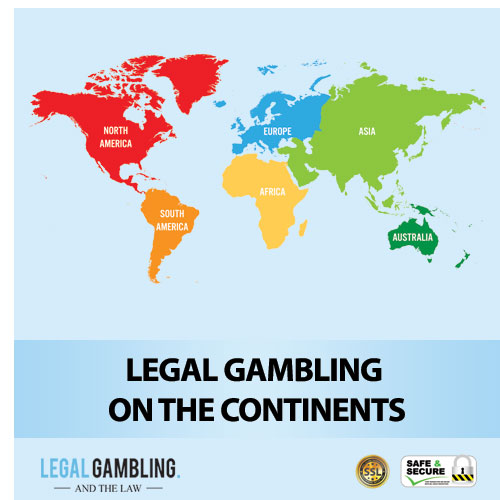Ever wondered how the legality of gambling varies around the world? Well, get ready for a journey that will take you across continents, exploring the exciting world of gambling laws. From bustling casinos in Las Vegas to online gambling platforms, the regulations and permissions can differ drastically. So, let’s dive in and discover how different countries approach the legality of gambling!
In some places, gambling is as common as the air we breathe. You’ll find casinos, betting shops, and lottery tickets on every corner, making it easy to try your luck. But beware! In other countries, gambling might be strictly regulated or even prohibited altogether. It’s like a game of chance itself, where the rules change from one place to another. So, hold on tight as we unravel the intricacies of global gambling legislation.
From the glitz and glamor of casino floors to the thrill of online betting, there’s a whole world of gambling waiting to be explored. Join us as we uncover the diverse and sometimes surprising ways countries navigate the legality of gambling. Get ready to be amazed, entertained, and perhaps even inspired to try your luck in different corners of the globe. Let’s embark on this global adventure and delve into the fascinating world of gambling laws worldwide!

How Does the Legality of Gambling Vary Globally?
Gambling is a popular form of entertainment enjoyed by millions of people worldwide. However, the legality surrounding gambling varies significantly from country to country. Some nations have embraced it, allowing for a flourishing gambling industry, while others strictly regulate or even ban all forms of gambling. In this article, we will explore the global landscape of gambling legality and delve into the various factors that influence its status in different jurisdictions.
Legalization of Gambling: A Historical Perspective
The history of gambling regulation dates back centuries, with varying attitudes towards its legality. In some ancient civilizations, gambling was an integral part of cultural activities and religious rituals. Rome, for instance, had a thriving gambling culture, while Ancient China was known for its popular game of chance called keno. Fast forward to the modern era, and gambling has faced shifting perceptions and changing legislation.
The first major wave of gambling legalization occurred during the late 20th century when several countries, including the United States, started to loosen their gambling laws. This shift was primarily driven by economic considerations, as governments recognized the potential for revenue generation through regulated gambling. As a result, bustling casino destinations like Las Vegas and Macau emerged, attracting tourists and boosting local economies. However, even in countries where gambling is legal, there are often strict regulations in place to ensure fair play, prevent gambling addiction, and mitigate illicit activities.
Economic Impact of Gambling Legalization
The decision to legalize gambling is often driven by economic factors. Proponents argue that a regulated gambling industry can generate substantial revenue, create jobs, and stimulate tourism. For instance, in the case of Macau, the largest gambling destination in the world, the industry contributes significantly to the region’s GDP and provides employment opportunities for thousands of people.
Additionally, the introduction of online gambling has further shaped the economic impact of gambling legalization. Online platforms offer convenience and accessibility, attracting a larger customer base and boosting revenue. Several countries have embraced online gambling and have implemented regulations to ensure player protection and responsible gambling. However, some nations have adopted a more conservative approach, imposing strict regulations or outright bans on online gambling.
Factors Influencing Gambling Legality
Several key factors influence the legality of gambling on a global scale. Cultural and religious beliefs play a significant role in shaping attitudes towards gambling. In countries with religious traditions that view gambling as immoral or sinful, it is more likely to be restricted or banned. Conversely, cultures that perceive gambling as a form of entertainment are more likely to embrace its legalization.
The political landscape also has a substantial impact on gambling legality. Governments may choose to regulate gambling to ensure tax revenue generation, boost tourism, or address social issues related to gambling addiction. Conversely, some governments perceive gambling as a potential threat to public welfare and adopt strict regulations or bans.
Furthermore, the influence of international agreements and organizations cannot be overlooked. Organizations like the World Trade Organization (WTO) have advocated for the liberalization of gambling markets, challenging restrictive laws and promoting fair trade. These efforts have led to changes in the gambling landscape in some countries, particularly within the European Union.
The Legalization Debate: Pros and Cons
The legalization of gambling is a contested topic, with valid arguments presented by both proponents and opponents.
Those in favor of legalization highlight the economic benefits, job creation, and potential revenue generation. They argue that regulated gambling can provide a safe and controlled environment for players, with measures in place to prevent addiction and protect vulnerable individuals. Additionally, they emphasize the importance of consumer choice and freedom in deciding how to spend their leisure time and money.
On the other hand, opponents of gambling legalization raise concerns about the social and economic costs associated with gambling. They point to issues such as gambling addiction, increased crime rates, and negative impacts on vulnerable communities. Opponents also argue that gambling preys on the most disadvantaged members of society and that the potential economic benefits may be outweighed by the societal harm caused by widespread gambling.
Regulation vs. Prohibition: Finding the Balance
In light of the complex and varied landscape of gambling legality globally, many countries strive to find a balance between regulation and prohibition. Regulation allows for better control and oversight, ensuring player protection and responsible gambling practices. It also enables governments to reap the economic benefits associated with a thriving gambling industry.
However, it is crucial to strike a balance between regulation and protecting against the potential negative impacts of gambling. Effective regulations should focus on preventing and addressing gambling addiction, promoting responsible gambling, and protecting vulnerable individuals. Education and awareness campaigns, treatment programs for those struggling with addiction, and responsible marketing practices can all contribute to a healthier gambling ecosystem.
In conclusion, the legality of gambling varies greatly around the world due to a multitude of factors, including cultural beliefs, economic considerations, political landscapes, and international influences. While some countries have fully embraced gambling, others maintain strict regulations or outright bans. The ongoing debate surrounding the legalization of gambling emphasizes the need to find a balance that prioritizes responsible gambling practices and safeguards against potential societal harm. Ultimately, the future of gambling legality will continue to be shaped by evolving attitudes, research, and global developments.
Key Takeaways: How does the legality of gambling vary globally?
- 1. Gambling laws and regulations differ from country to country.
- 2. Some countries have fully legalized gambling activities.
- 3. Other countries have strict regulations or even ban gambling altogether.
- 4. Online gambling is subject to different laws and restrictions in various jurisdictions.
- 5. It’s important to be familiar with the local laws before engaging in any gambling activities.
Frequently Asked Questions
In this section, we’ll answer some common questions about how the legality of gambling varies around the world.
What countries have completely banned gambling?
While many countries have restrictions on gambling, a few have completely banned it. One such country is North Korea, where gambling is illegal due to the government’s strict control over all economic activities. Another example is Saudi Arabia, where gambling is not only illegal but also considered a violation of Islamic religious law.
Other countries that have banned gambling include Brunei, Qatar, and Singapore. It’s important to note that these bans generally apply to all forms of gambling, including online gambling.
Which countries have legalized online gambling?
The legality of online gambling varies from one country to another. Some countries that have legalized online gambling include the United Kingdom, Malta, and Gibraltar. These countries have implemented regulations and licensing systems to ensure the protection of players and the integrity of the industry.
In the United States, online gambling is legal on a state-by-state basis. Several states, including New Jersey, Pennsylvania, and Nevada, have legalized online casinos and poker sites. However, other states still have strict laws against online gambling.
Are there any countries where gambling is both legal and widely accepted?
Yes, there are countries where gambling is not only legal but also widely accepted as a form of entertainment. One such country is the United Kingdom, where gambling has a long history and is deeply ingrained in the culture. The UK has a well-regulated gambling industry and a variety of legal gambling options available, including casinos, sports betting, and online gambling.
Other countries where gambling is both legal and widely accepted include Australia, Canada, and several European countries like Germany and France.
Do all countries have the same age restrictions for gambling?
No, different countries have different age restrictions for gambling. In most countries, the legal age for gambling is 18 or 21. For example, in the United States, the legal gambling age varies from state to state, with some states setting the age at 18 and others at 21.
It’s important to note that online gambling platforms often have their own age restrictions, which may be stricter than the legal age in a particular country. Players should always check the age requirements of the gambling platform they wish to use.
What are the potential consequences of illegal gambling?
The consequences of illegal gambling vary depending on the jurisdiction and the severity of the offense. In some countries, illegal gambling can result in hefty fines and even imprisonment. Additionally, individuals involved in illegal gambling may face reputational damage and social stigma.
Furthermore, illegal gambling operations are often associated with organized crime and can contribute to money laundering and other illegal activities. This is why many countries have strict laws and regulations in place to combat illegal gambling and protect their citizens from the potential harms associated with it.
The Magic Economics of Gambling
Summary
Gambling laws differ around the world. Some countries ban it completely, while others allow certain forms of gambling. Even within a country, laws can vary between different states or regions. The legality of gambling is influenced by cultural, religious, and economic factors.
Gambling regulations aim to balance the potential benefits, like tax revenue and tourism, with the risks of addiction and crime. Online gambling adds another layer of complexity, as it can cross borders and challenge existing regulations. Understanding the global variations in gambling legality helps us see how different societies view this popular activity.
